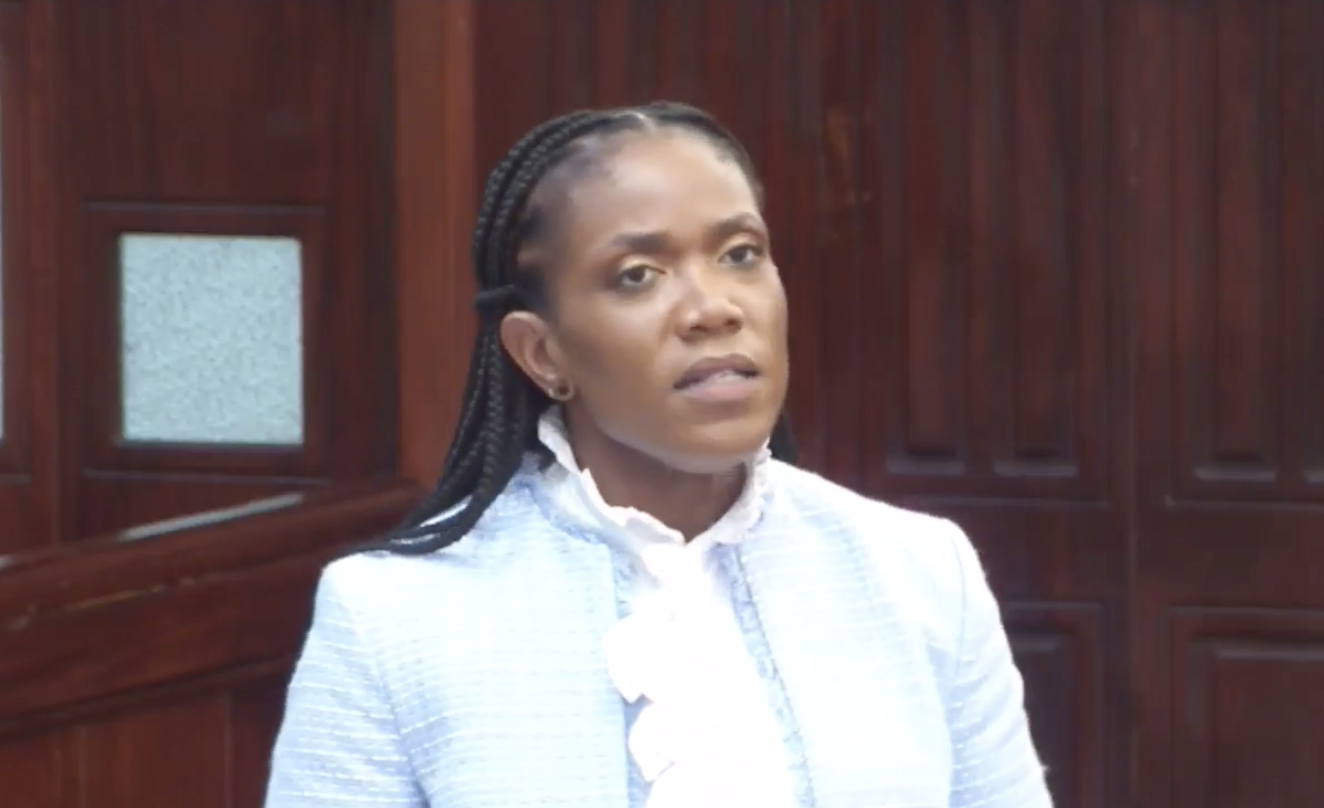Minister Defends Government's Blue-Green Bank for Sustainable Development and Climate Resilience

Minister Marsha Caddle defends Barbados' Blue-Green Bank as a pivotal step towards sustainable development and climate resilience, emphasizing innovative financial frameworks and self-reliance over foreign dependency.
Minister of Industry, Innovation, Science and Technology Marsha Caddle has defended the government’s planned Blue-Green Bank, declaring the importance of innovative financial frameworks to support the nation’s sustainable development and climate resilience.
Speaking as the House debated the Barbados Blue-Green Bank Bill on Tuesday, she called the bank a key initiative of the government.
“This bank is not merely a financial institution,” she said. “It represents a paradigm shift in how we approach development, integrating climate resilience and sustainability into the core of our economic framework. The Blue-Green Bank does benefit from capitalisation through the Resilience and Sustainability Fund of the International Monetary Fund (IMF), but it is not a product of the IMF’s past policies. [It] is born out of Barbados’ forward-thinking and our commitment to leading our development agenda.”
The St Michael South Central MP pushed back against Opposition Leader Ralph Thorne’s criticisms, noting that Barbados has played a vital role in reshaping the approach of global financial institutions like the IMF. “The IMF we engage with today is not the same as the one from the 1980s and 90s,” she said. “Barbados has influenced this change, ensuring policies that promote social well-being and sustainable development.”
In a direct rebuttal to Thorne, Caddle said: “This bank does not signify dependency on foreign entities. Instead, it embodies our commitment to self-reliance and our innovative approach to financing development.”
Drawing on her experience as a development economist, she said there was a shift in the global understanding of climate and development. “Years ago, we were told to separate climate issues from development,” she recalled. “Today, we recognise that they are inextricably linked. Climate change impacts every aspect of our lives, and our development strategies must reflect this reality.”
The minister highlighted past experiences where international aid focused narrowly on rebuilding infrastructure without addressing underlying vulnerabilities. “We cannot continue this cycle of borrowing for short-term fixes,” she asserted. “The Blue-Green Bank is about creating sustainable solutions that integrate climate resilience into every facet of development.”
Addressing the need for a comprehensive financial and policy framework, Caddle noted that such measures were already in place to accompany the launch of the Blue-Green Bank. These include significant tax incentives to spur investment in sustainable and climate-resilient projects. “We are introducing an additional 25 per cent non-refundable tax credit for research and development related to green technologies and a 50 per cent refundable tax credit for projects that achieve net zero emissions,” she announced.
The MP also emphasised the importance of coastal conservation, highlighting a new 50 per cent tax credit for beach rehabilitation and coral reef restoration. “These measures are designed to work in tandem with the Blue-Green Bank, creating an ecosystem for sustainable development,” she said, stressing that the bank was more than just a bank; it is part of a broader ecosystem for development. “This is about creating a supportive environment where sustainable industries can thrive,” she explained. “We need to rethink everything from energy transmission to construction practices to build a resilient future.”
Outlining the need for Barbados to lead in transitioning to more efficient energy systems, Caddle said: “We need companies and individuals who can drive this transition . . . the Blue-Green Bank will provide the financial support necessary to make these changes a reality.
“This is not just about responding to climate change . . . It is about seizing the opportunity to build a better, more sustainable future for Barbados.” (RG)


